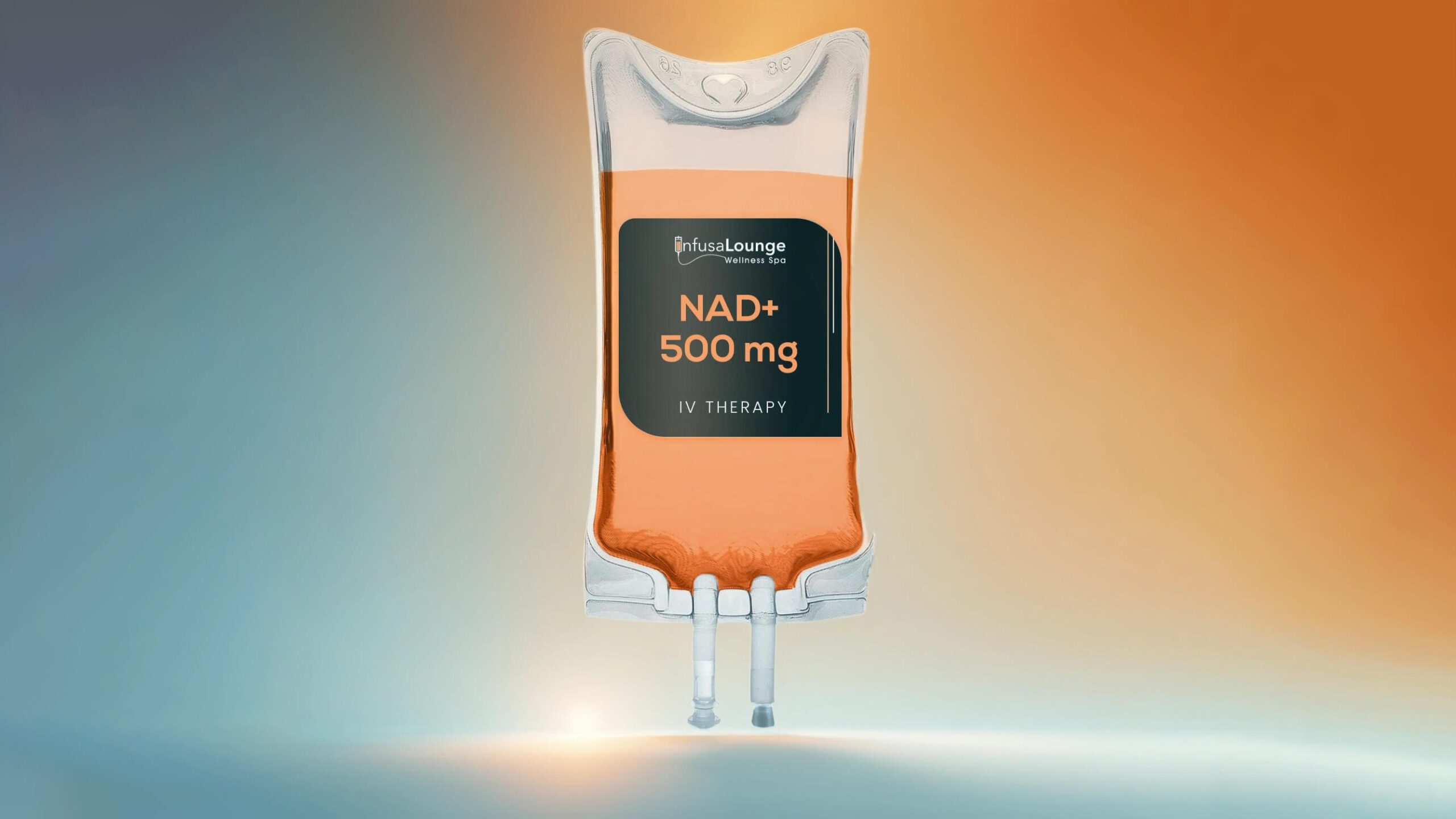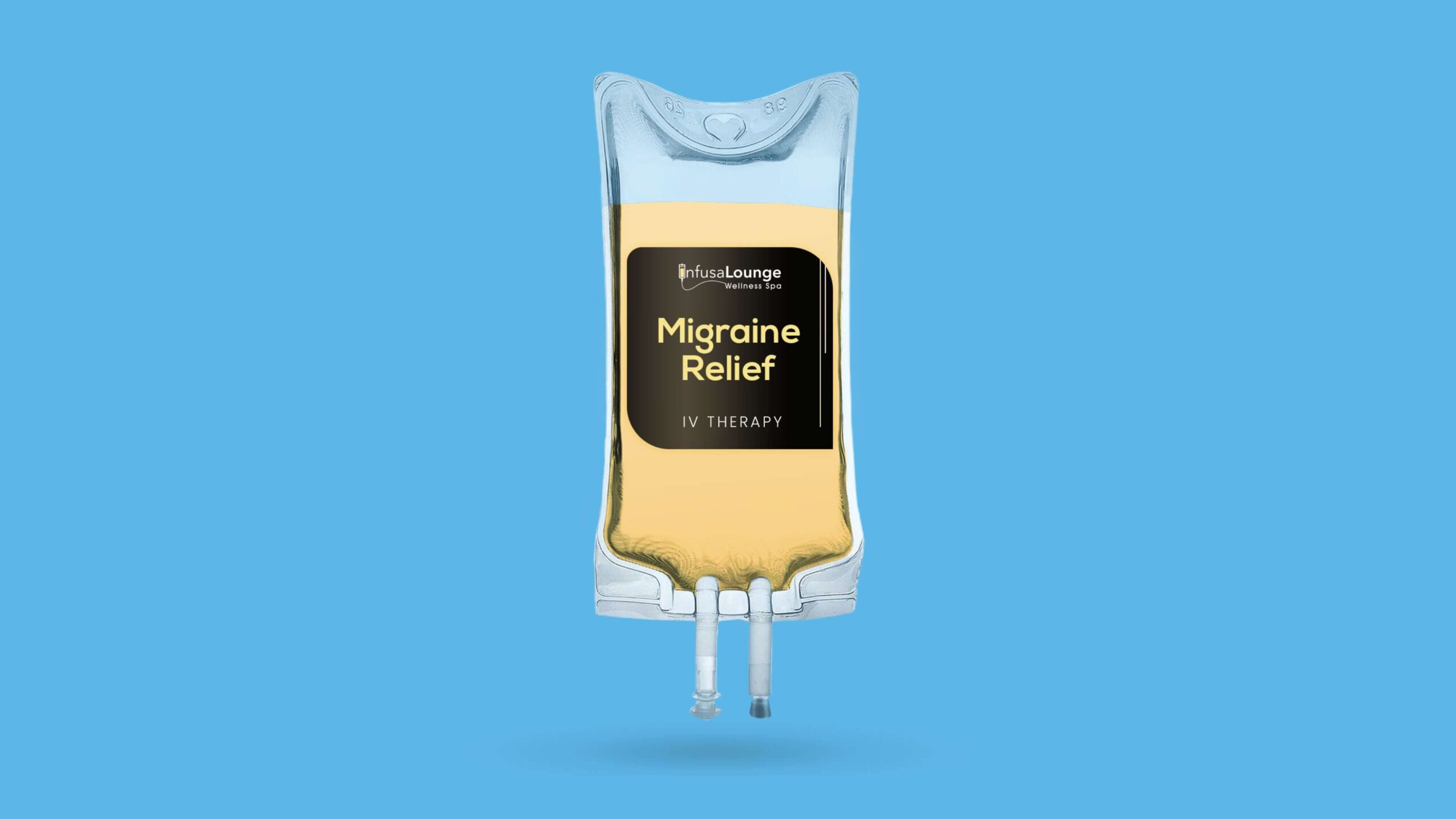Exosome Therapy in Allen, Texas: Cellular Treatment for Wellness
Unleashing the power of tiny nano-sized particles that work miracles at cellular level, Exosome Therapy is making waves as the next frontier in regenerative medicine. Dramatically reshaping our approach to disease, recovering from injury and overall wellness, this groundbreaking therapy has arrived in Allen, Texas at InfusaLounge Wellness Spa.
Brace yourself for a deep dive into this fascinating world of Exosome Therapy, where science meets rejuvenation and join us at InfusaLounge on a journey towards the future of cellular treatment for wellness.
Exosome therapy is a cutting-edge regenerative therapy that utilizes extracellular vesicles to promote healing, reduce inflammation, and enhance tissue regeneration. In Allen, Texas, InfusaLounge Wellness Spa offers exosome therapy as part of our range of regenerative therapies. This non-invasive treatment can potentially benefit individuals seeking relief from various conditions, such as joint pain, sports injuries, chronic inflammation, and more. We have certified staff who can provide personalized treatment plans based on your specific needs to help you achieve optimal wellness results.

Exosome Therapy Defined
Exosome therapy is a form of regenerative medicine that harnesses the power of exosomes, small extracellular vesicles that carry important cellular information between cells. These nanosized vesicles are harvested from stem cells, which are abundant in the human body and promote healing and regeneration. Over time, stem cells tend to weaken or diminish in number, leading to reduced healing capacity. Exosome therapy fills this gap by delivering a concentrated and potent dose of stem cell-derived exosomes directly to affected tissues or organs.
To illustrate this concept further, consider a patient who has undergone surgery and has weakened cartilage as a result. Instead of administering medications that can momentarily reduce pain levels without addressing the underlying issue, exosome therapy offers a long-term solution by targeting weakened cartilage directly. The exosomes help repair the damaged tissue by stimulating the growth of new healthy cartilage.
Exosome therapy is an emerging treatment that shows promise in various fields such as orthopedics, dermatology, cardiology, among others. In the next section, we will delve into the science behind cellular treatment.
The Science Behind Cellular Treatment
The basis for exosome therapy lies in the fundamental principles of regenerative medicine. Regenerative medicine refers to the process of restoring or replacing damaged or diseased tissues at a cellular level to improve overall function and alleviate symptoms like pain or inflammation.
One of the primary questions people often ask when it comes to regenerative therapies is why they use stem cells instead of other types of cells in our bodies? While many different cell types could be used in cellular therapies, scientists have found that stem cells are unique because they can differentiate into various cell types based on their specific environment’s needs.
Stem cells also contain unique messenger RNA molecules within their intracellular surroundings instructing best practices for an optimum healing environment on how best neighboring cells should behave. These messenger molecules can be carried inside exosomes and, when delivered to target cells, aid repair and regeneration, thus improving tissue function.
By using what we know about cell behavior and development, researchers have harnessed the power of stem cells by deriving concentrated exosome therapies for targeted cellular treatment.
In essence, exosome therapy provides a natural way to instruct cells to carry out specific functions based on their environment in the body. By delivering a concentrated dose of healthy exosomes to affected tissues or organs, the therapy helps promote healing and regeneration while decreasing inflammation, pain, and other symptoms.
To better paint a picture of how this takes place – consider someone who has an injury on their knee cartilage; they may experience swelling and pain that traditional therapies cannot solve but with Exosome Therapy, these symptoms can gradually fade away as growth factors and RNA molecules support nearby tissues’ healing process.
One benefit of this science is that it bypasses the need for surgery or pharmaceutical drugs that often come with undesirable side effects. Cellular treatment could potentially offer a more sustainable approach that promotes long-term health benefits.
Known Benefits of Exosome Therapy
Exosome therapy is a promising field that holds several potential benefits for wellness. Some of the known positive aspects of exosome therapy include reduced inflammation, enhanced healing, and improved cellular function. Furthermore, exosomes have demonstrated the ability to facilitate cellular communication, regulate gene expression, and support tissue regeneration.
Several studies have shown that exosomes can curb an inflammatory response, which is beneficial for treating injuries or degenerative diseases. The exosomes contain signal molecules that modulate immune system action in cases where an overly active immune response causes adverse effects. Exosomes help by recruiting immune cells and promoting their action as needed.
Another significant benefit of exosome therapy lies in its ability to enhance healing processes in the body. This type of therapy has become increasingly popular among athletes as it can speed up recovery times from injuries such as sprains, strains, and even fractures. Studies have shown that the proteins contained within exosomes can stimulate the production of collagen, which helps build new tissues.
Exosomes can also improve cellular function within the body by promoting regeneration and cell growth. These membrane-bound extracellular vesicles have been shown to play an integral role in cell signaling both locally within tissues and throughout the entire body systemically. They carry messenger RNA molecules and miRNAs that ultimately lead to optimized intracellular communications.
Regenerative and Healing Properties
The regenerative capability of exosome therapy is central to its effectiveness as a treatment for wellness. Upon administration, exosomes go straight to work on regenerating damaged cells through their bioactive properties by targeting specific biosynthetic pathways within cells that promote growth.
Exosome therapy boasts unique healing properties due to its regenerative capabilities as well as its anti-inflammatory properties. The stem cells used in this treatment secrete bioactive factors that alter inflammatory events associated with aging-related diseases and tissue damage repair. They promote regeneration by increasing vascularization via metabolic activity.
For instance, exosome therapy has shown promise in treating chronic obstructive pulmonary disease (COPD). COPD is a progressive and irreversible lung disease that leads to difficulty breathing. Inhalation of exosomes derived from mesenchymal stem cells has significantly reduced inflammation and improved lung function, indicating the regeneration of lung tissues, which could serve as a model for regenerative medicine.
- Exosome therapy holds great potential for promoting wellness and treating age-related diseases by regenerating damaged cells and reducing inflammation. Its bioactive properties target specific pathways within cells, promoting growth and regeneration. In the case of chronic obstructive pulmonary disease (COPD), inhalation of exosomes has shown promising results in improving lung function and reducing inflammation, suggesting its application in regenerative medicine.
Potential Uses for Exosome Therapy
Exosomes are tiny vesicles that can facilitate cell-to-cell communication. They are found in various bodily fluids, including blood, urine, and breast milk, and play a crucial role in tissue regeneration and cellular repair. Moreover, they can carry important genetic materials such as messenger RNA (mRNA) and microRNAs that provide instructions for protein synthesis. Due to these properties, exosome therapy has been a popular treatment option across multiple conditions and illnesses.
For instance, cardiovascular disease remains one of the top causes of death worldwide. Studies have shown that exosomes` derived from mesenchymal stem cells (MSCs) have therapeutic potential in treating this condition. The exosomes resulted in improved heart function post-myocardial infarction (MI). Another study found MSC-derived exosomes effectively reduced the size of MI-damaged hearts by 60% compared to control groups.
Additionally, brain injuries and neurodegenerative diseases are also potential areas of use for exosome therapy. A research team at Yale School of Medicine discovered that introducing stem cell-derived exosomes into a traumatic brain injury site resulted in significant reduction of injury size.
Other potential uses include joint pain and inflammation, wound healing, autoimmune disorders, and oncology treatments.
Now that we’ve looked into potential uses let’s examine some of the diseases this therapy can address.
Conditions and Diseases Addressed
Exosome therapy may be used to treat conditions such as arthritis, nerve damage or degeneration, ALS (amyotrophic lateral sclerosis), diabetes complications such as peripheral neuropathy, liver cirrhosis or fibrosis, Alzheimer’s disease, Parkinson’s disease, stroke or cardiac diseases like myocardial infarction.
Exosome therapy is like having little messengers show up on a building site with tools for construction workers to help regrow cells needed for repair. This makes it a promising treatment for many illnesses and diseases that commonly afflict patients.
Exosomes therapy has also shown extremely positive results in combating autoimmune disorders such as Lupus, Crohn’s disease, and Multiple Sclerosis by reducing inflammation levels and positively modulating the immune system. Similarly, exosome therapy has great potential in treating chronic wounds by activating stem cells leading to new cell growth that promotes tissue regeneration.
It is important to note that exosome therapy is not a cure but rather an aid in promoting cellular restoration, regeneration, balance, and repair. The therapeutic effects may vary depending on the individual’s response and overall health status.
- The global market for exosome research, and consequently related therapies, is expected to reach $2.28 billion by 2030, indicating an increasing interest in and demand for such treatments.
- According to a review article published in the Journal of Translational Medicine in 2020, exosome therapies are currently being investigated in over 100 clinical trials worldwide, reinforcing their potential therapeutic applications.
- In a recent survey conducted among leading regenerative medicine clinics, it was found that nearly 65% of them now offer some form of exosome therapy, reflecting its rapid adoption in the field of regenerative medicine.
The Exosome Therapy Procedure
Exosome therapy is a cutting-edge treatment that involves the use of exosomes to regenerate cells and promote healing. These exosomes are obtained from either human stem cells or plant-based stem cells and contain various growth factors, cytokines, and other beneficial components. The procedure itself is relatively straightforward, and it typically takes around 30 minutes to complete.
Firstly, the patient will undergo a consultation with a medical professional who will guide them through the process and explain how exosomes work. Afterward, they will be asked to sign a consent form before commencing the treatment.
Once the patient is ready, a small amount of blood is drawn and sent for testing to determine eligibility. Assuming the patient is eligible, the exosomes are then placed in a syringe before being administered directly into the area requiring treatment via an injection. These injections can target various areas of the body such as joints, muscles or skin, depending on the reason for treatment.
While this may sound like an invasive procedure, it’s worth noting that it’s entirely non-surgical and can generally be completed in an outpatient setting.
Patient’s Experience During Treatment
Patients who have undergone exosome therapy have reported feeling only minimal discomfort during the injection process. Most patients describe this as similar to getting a flu shot. The entire procedure is relatively quick, so any discomfort experienced dissipates soon after the treatment procedure ends.
It’s worth noting that results may naturally vary between patients based on their individual biology, genetic makeup and response to therapy. However, common themes emerge with patient reporting reducing inflammation parameters such as pain and stiffness within days post-treatment.
For instance, suppose a patient undergoes exosome-based therapy for joint pain in their knee or shoulder. In that case, they can expect minimal downtime and return to their normal daily routine quickly. For some, however, several treatment sessions might be required before noticing significant improvement in mobility and pain relief.
It’s important to emphasize that exosome therapy can provide a safe and viable alternative for those hoping to avoid surgeries, lengthy hospital stays and more importantly potentially unnecessary medication.
Backing Evidence for Exosome Therapy
Exosome therapy is a revolutionary regenerative treatment that uses stem cell particles to promote cellular repair and regeneration in the body. While it’s still a relatively new field, researchers have been exploring the potential applications of exosomes extensively.
The use of exosomes in clinical applications isn’t something that has come out of nowhere. Researchers have been studying their efficacy since their discovery by Johnstone in 1987. Since then, it has been discovered that they play a crucial role in cell-to-cell communication through transporting RNA, miRNA, DNA, and proteins. These elements transform cells from sick to healthy.
As research progresses, numerous studies are pointing to the potential benefits of exosome therapy. For example, exosome infusion into rodents was found to improve cognitive function significantly while reducing inflammation caused by traumatic brain injury .
Precision delivery using exosomes results in an efficient immune response modulator capable of suppressing inflammatory cytokines and stimulating angiogenesis . This breakthrough enables healing from within without invasive measures, consistently leading to faster healing times than traditional treatments.
The great news is that there is increasing evidence supporting exosome therapy as an avenue for treating various medical conditions such as osteoarthritis, rheumatoid arthritis, gut health issues, athletic injuries by accelerating repair, and assisting hair growth, just to mention a few.
Precision delivery using exosomes results in an efficient immune response modulator capable of suppressing inflammatory cytokines and stimulating angiogenesisanalogy. This breakthrough enables healing from within without invasive measures consistently leading to faster healing times than traditional treatments.
Key Research and Studies Results
Research into exosome therapy continues to uncover its many potential benefits. In studies on mice with osteoarthritis showed significant reductions in inflammation as well as increased cartilage regeneration over a period of eight weeks (Zhang et al., 2016). Other research indicated that MSC-derived exosomes were a promising, cell-free regenerative therapy intervention for stroke, myocardial infarction, wound healing, and neurodegenerative diseases .
These studies suggest that exosome therapy could be used to treat various ailments successfully. Although research is ongoing, exosome therapy has shown excellent results in numerous clinical settings.
Another critical finding of this therapeutic approach is its use as an adjuvant in oncology treatment. Exosomes have anti-tumor effects that may complement standard treatments such as radiation and chemotherapy. They could also provide potential new alternatives to conventional treatments with fewer side effects .
Some notable studies suggest the potential value of exosome-based therapies in tumor immunology and cancer treatments. For example, one study showed that exosomal immunomodulatory approaches are viewed as a highly promising strategy for cancer treatment (Hoshino et al., 2020). Another study demonstrated that MSC-derived exosomes may help modulate the immune system, inhibit tumor growth while reducing the toxicity associated with chemotherapy (Kourembanas et al., 2019).
In conclusion, we hope this overview of exosome therapy has been helpful. If you have any questions about whether this therapy can help you with a particular health concern, don’t hesitate to reach out to us at InfusaLounge Wellness Spa!







